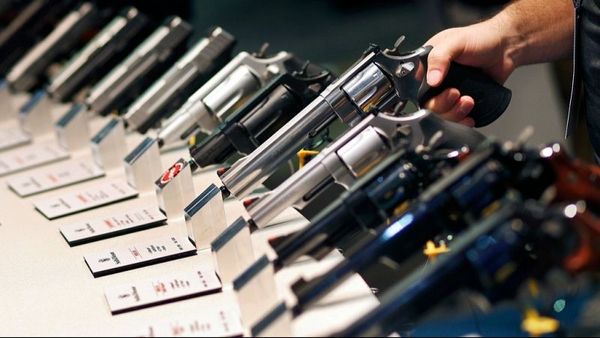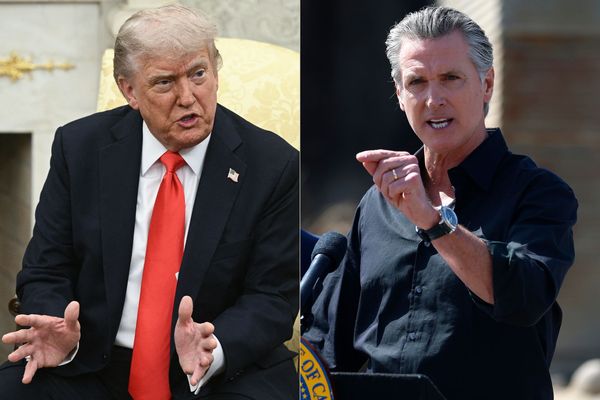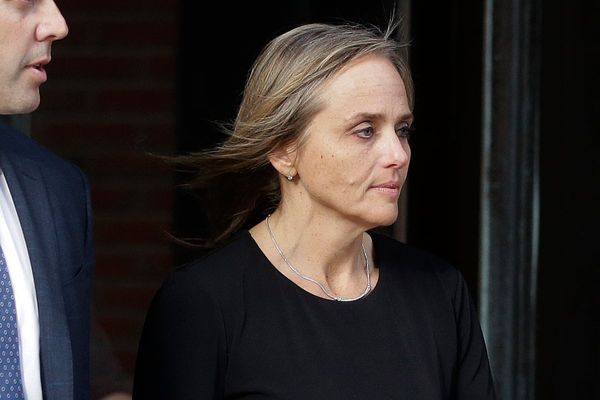
The slender short story that inspired this ambitious “first contact” film contains discussions of Fermat’s principle and diagrammatical explanations of refracted light, hardly a blueprint for a multiplex-friendly fantasy flick. Yet from the atemporal monologue of Ted Chiang’s Story of Your Life, in which the narrator remembers events in the future tense, screenwriter Eric Heisserer has spun an admirable script for a film as cerebrally adventurous as it is emotionally accessible. Confidently directed by French-Canadian film-maker Denis Villeneuve, making his first foray into the sci-fi genre before the forthcoming Blade Runner sequel, Arrival charts a bold course between the guiding stars of Robert Zemeckis’s Contact and Steven Spielberg’s Close Encounters of the Third Kind, with just a hint of the gravitational pull of Andrei Tarkovsky’s Solaris.
“I used to think this was the beginning of your story,” says Dr Louise Banks (Amy Adams) over the opening strains of Max Richter’s On the Nature of Daylight, a theme to which Arrival will return significantly in its closing stanzas. With startling economy, Villeneuve conjures a snapshot portrait of motherhood cut short by a daughter’s death; love and despair described with surgical precision. From such tragedy we move with equal economy to the titular event – a string of spaceships spanning the globe for reasons unknown. Leading linguist Dr Banks is promptly pressed into service as an interplanetary translator, teamed with Jeremy Renner’s tetchy-but-cute physicist Ian Donnelly, who insists that “the cornerstone of civilisation isn’t language, it’s science”.
Together, this star-crossed pair must venture into the void, attempting to converse with creatures who are seen through a glass darkly,and who communicate via inky circles, what Chiang calls “mandalas... in which premises and conclusions were interchangeable”. Forest Whitaker’s typically terse army intelligence officer wants quick answers: “What do they want? Where are they from?” But for Banks, understanding these visitors will require a more intuitive, elliptical approach.
Although the spectre of low-hanging spaceships encircling the world seems to evoke the apocalyptic iconography of Independence Day, it’s the rough-hewn beauty of British director Gareth Edwards’s ironically titled Monsters to which Arrival owes the greater debt. From the “dirty sci-fi” aesthetic of Bradford Young’s tactile cinematography to the gentle, odd-couple chemistry of Adams and Renner, there’s an intimacy here that resonates with Edwards’s 2010 low-budget debut. In contrast to such human touches, the pebble-shaped alien vessels are impressively otherworldy, eerily recalling Douglas Adams’s description of spaceships that “hung in the sky in much the same way that bricks don’t”. Once inside these shells, production designer Patrice Vermette’s sets seem every bit as unearthly as HR Giger’s Alien environments – vast and unknowable, their otherness accentuated by Jóhann Jóhannsson’s score. Yet even in these surroundings we can still feel Louise’s all-too-human heartbeat, with Amy Adams’s talent for telegraphing tangible emotions via tiny facial gestures shining through the isolating wrap of an orange hazmat suit.
Anyone familiar with the Tralfamadorians of Kurt Vonnnegut’s 1969 novel Slaughterhouse-Five, who view time as permanent, like “a stretch of the Rocky Mountains”, will recognise the underlying themes, both philosophical and emotional, which make Louise Banks a latterday Billy Pilgrim. Yet while the source codes may be familiar, there’s a pleasing clarity to Arrival’s dramatisation of such complex concepts as the Sapir-Whorf hypothesis, a theory that language defines cognition, which Dr Banks experiences first hand. While the military hawks press for strategic advantage, Louise finds her world reordered by alien semantics (“Are you dreaming in their language?’), notions of joy and grief refracted through the prism of a linguistic stargate.
As befits the director of Incendies and Sicario, Villeneuve also injects a sociopolitical edge into the fantasy narrative, with growing international tensions and calls for an armed response striking a very contemporary nerve, alongside tense discussion about understanding “the difference between a weapon and a tool”. Yet such adornments remain secondary to the core story of parental bonds transcending time and space, locating this in the same cinematic constellation as Christopher Nolan’s equally touching Interstellar.
“They should have sent a poet,” said Jodie Foster’s astronaut Dr Ellie Arroway in Contact, another character haunted by the loss of a loved one, locked in a galaxy-spanning battle between facts and faith. At a time when some of us, appalled by events on Earth, are looking to the stars for reassurance that love can indeed trump tragedy, Arrival may be just the poem we need; a departure from the dystopian visions which now appear all too real, a memory of a future in which light still shines in the darkness.







